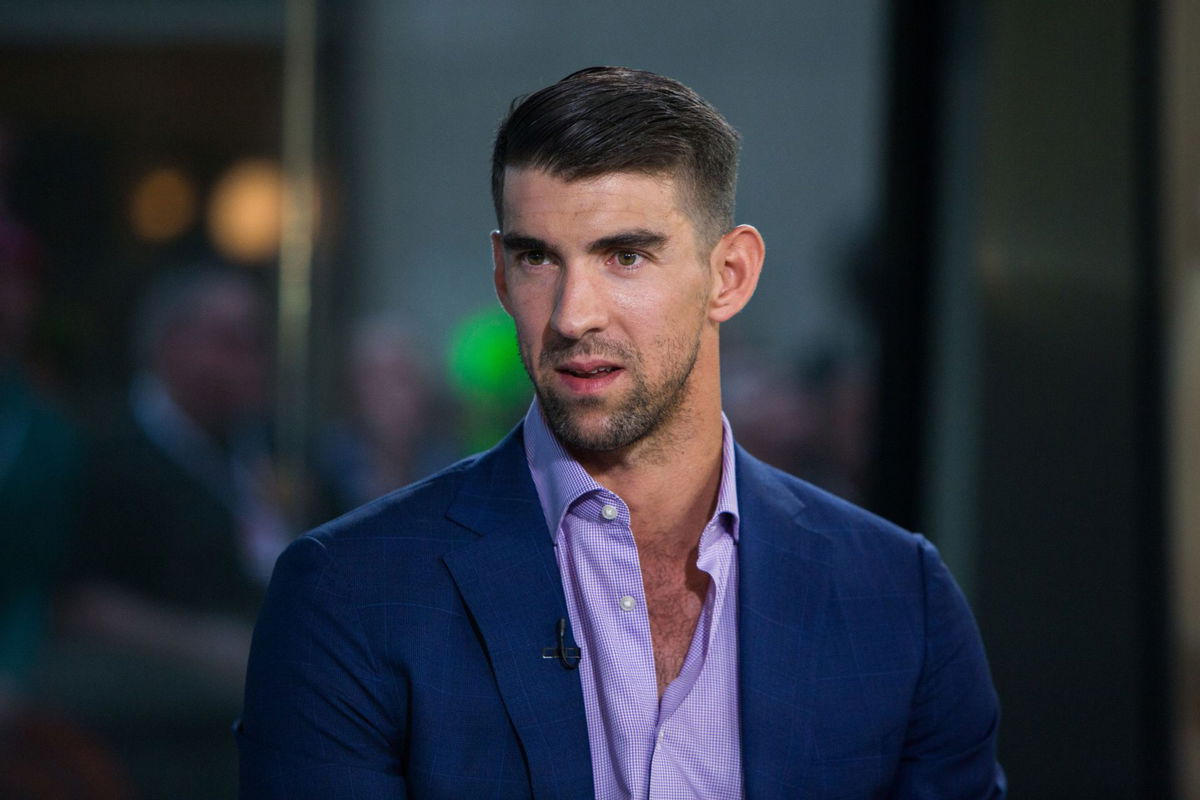

Michael Phelps, who once wore armor quite like an athletic machine, had a guest coming in the fall of 2014… His longtime coach Bob Bowman had come to see him at the barracks-style building called Meadows, a treatment center in Wickenburg, Ariz. only to find it difficult to locate the swimmer in him—one who could block out the rest of the world as he walked to the starting blocks ready for a dive or one who’s too self-absorbed to know the names of all of his teammates on the 2004 and 2008 US Olympic swimming squads. But who knew that above and beyond a resounding Olympic glory, Michael was the most miserable.
Watch What’s Trending Now!
Locked in four days straight at his home with suicidal thoughts and severe anxiety, a second DUI arrest, and many severed relationships later, Phelps signed up for a 45-day treatment program. By the end of it, Bowman was re-introduced to the same man, only this time Phelps was much more layered and emotionally looped in with his surroundings: “He had a little story about everybody. I had never seen him like that. I looked at him like ‘Who are you?’”
It all started right after the 2004 Games in Athens when Phelps was coming off an Olympic high of winning six gold medals, and it suddenly hit him: “What now?
“I could tell something was off,” Phelps said. “But I think I saw it as a sign of weakness, and if I shared anything about it, it would give my competitors an edge, and I am not trying to do that.” And although Bowman, who took over as coach of the Arizona State men’s and women’s swimming teams in 2015, initially suggested against Phelps entering a treatment program, on, Phelps went, with what has been a personal journey that continues to date. In a Sunday morning interview with NBC’s Meet the Press on Dec 29, Michael Phelps shared the latest update on his mental health,
ADVERTISEMENT
“I have my days like everyone does right we go through ups and downs and that’s just life. I feel like I have more tools now to prepare me through the the bumps, or the roller coasters like I call them, that I go through in my life. I’m enjoying it right like being retired again and and being able to talk about mental health which is something that you know personally I struggle with almost every single day.
“
Depression and anxiety aren’t just going to disappear, right? These are things that I have to adapt and I have adapted throughout my life and they are a part of my life. They’re always going to be a part of my life […] I mean there are times. There are, you know, 10-day spells where every day is a struggle. But for me it’s what can I control in that moment throughout my career I looked at myself as a a swimmer and an athlete now I can look in a mirror and see a person somebody that has feelings and emotions.”As per Phelps, during his glory days, he only used to perceive himself as a swimmer and an Olympian. Such perception created a sense of unwanted pressure. However, since the time he has been experiencing these symptoms, the Olympic legend decided to be a human being first. Now then, despite such struggles inside his head, Phelps never really let these demons take over him. In fact, according to Bob Bowman, Michael Phelps had a lot of fire in him that made him a star.
Bob Bowman details why Michael Phelps is different from Leon Marchand
Bob Bowman has been coaching Phelps for a long time. Much of the credit for his incredible Olympic accolades goes to Bowman for his exceptional tactical skills. However, having been in close proximity to Phelps for all these years, Coach Bowman is reluctant to make a comparison with Phelps. So much so that Bowman kept the American at the helm despite his other star pupil, Leon Marchand breaking the glass ceiling.
And there’s some solid reason behind it. Speaking on an episode of ‘The Exponential Athlete’ podcast back in December 19, 2024, Bowman detailed his stance on Phelps as opposed to Marchand. ““The obvious differences are physical. Michael is this massive, strong, prototypical, you know, swimming machine,” said Bowman. The coach further stated, “Michael is very Tiger Woods, incredibly intense about everything he does, and to do his job, he has to kind of get intense.”
Bowman also opined that while training the 28x Olympic medalist, Phelps used to challenge Bowman’s tactics often. Thus, it was a thrilling experience to get Phelps to believe in his coach and ultimately make him into a legend. So, with the depression likely to longer, Michael Phelps is now gearing up for the years to come ahead.
ADVERTISEMENT
ADVERTISEMENT
ADVERTISEMENT
ADVERTISEMENT

